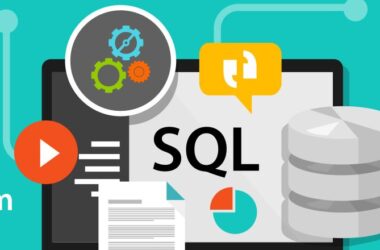Python programming stands as a cornerstone of modern software development, encapsulating ease of learning with robust capabilities across various technological domains. Whether you’re diving into the tech world for the first time or seeking to enhance your programming arsenal, Python offers an expansive suite of tools and a community that fosters innovation and collaboration. This detailed guide delves into the world of Python, exploring its fundamental aspects, diverse applications, and why it remains a top choice among professionals and hobbyists alike.
What is Python Programming?

Python programming involves utilizing Python, an interpreted, high-level language known for its emphasis on readability and efficiency. Developed by Guido van Rossum and released in 1991, Python supports multiple programming paradigms, including procedural, object-oriented, and functional programming. Its design philosophy emphasizes code readability and its syntax allows programmers to express concepts in fewer lines of code than possible in languages like C++ or Java.
Key Features of Python Programming
- Community Support: The global community of Python developers is large and ever-growing, providing an immense resource for collaboration and support.
- Simplicity and Readability: Python’s syntax is designed to be clear and readable, making it ideal for beginners and efficient for experienced programmers.
- Dynamic and Strong Typing: Python supports dynamic typing (types are checked at runtime) and strong typing (types are enforced), offering flexibility and safety in coding.
- Extensive Libraries: Python’s comprehensive standard library and third-party modules cover everything from web development to scientific computing.
- Cross-Platform Compatibility: Python is available and runs consistently across major operating systems including Windows, Linux, and macOS.
- Integrated Development and Rapid Prototyping: Python is not only great for production but also for prototyping ideas quickly, with less code and fewer errors.
Practical Uses of Python in Various Tech Fields
- Education: Python’s simplicity makes it an excellent tool for teaching programming, computational thinking, and problem-solving.
- Web Development: Python’s powerful frameworks, such as Django and Flask, make it easy to build complex web applications with less code and more flexibility.
- Data Science: Python is the leading language for data analysis, and libraries such as Pandas, NumPy, and Matplotlib facilitate data manipulation, analysis, and visualization.
- Machine Learning and AI: Libraries like TensorFlow, Keras, and Scikit-learn make Python a preferred language for AI research, offering tools for everything from neural networks to natural language processing.
- Automation and Scripting: Python simplifies automating system administration tasks, data management, and software testing, enhancing productivity and reducing errors.
- Game Development: Python is used in game development to script behavior and logic for games, using libraries like Pygame.
Why Learn Python Programming?
Strong Ecosystem: The wealth of frameworks, libraries, and tools available to Python developers means you can build just about anything.
Versatility: Python’s application in various fields like web development, data science, and AI makes learning it highly beneficial.
Ease of Learning: Python’s user-friendly syntax makes it accessible to beginners and valued by experienced developers for rapid development.
Career Opportunities: Proficiency in Python opens doors to numerous high-paying jobs in data science, machine learning, and backend development.
Python Programming for Beginners
Starting with Python is straightforward:
- Project Building: Start with small projects and gradually increase complexity as you become more comfortable with the language.
- Installation: Begin by installing Python from the official Python website, ensuring you have the latest version.
- Learning Resources: Utilize platforms like Codecademy, and Coursera, or free resources like Automate the Boring Stuff with Python.
- Interactive Learning: Engage with interactive Python interpreters like IPython or online platforms that offer real-time code execution.
- Community Engagement: Participate in communities like Stack Overflow, Reddit’s r/learnpython, or local meetups to gain insights and tips.
Advanced Python Programming
For those looking to deepen their Python knowledge:
- Continuous Learning: Keep up-to-date with the latest Python releases and features, and explore other programming languages that complement Python’s capabilities.
- Advanced Libraries: Explore advanced libraries and frameworks to extend your capabilities in web development, data science, and machine learning.
- Contribute to Open Source: Engage with the open-source community by contributing to Python projects, which can help improve coding skills and professional networking.
Final Thought
Python programming is a dynamic and rewarding skill that opens up vast opportunities in various tech fields. Its combination of simplicity, powerful libraries, and a supportive community makes it an ideal programming language for both beginners and experienced developers. Whether your interest lies in developing web applications, analyzing data, or creating AI algorithms, Python provides the tools and resources needed to succeed. Embrace Python programming today and unlock a world of possibilities in technology and beyond.
This blog offers a comprehensive insight into Python programming, designed to equip readers with a deep understanding of the language, its features, applications, and the numerous benefits of adding it to their skill set.








